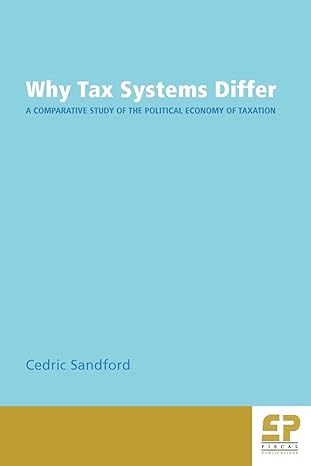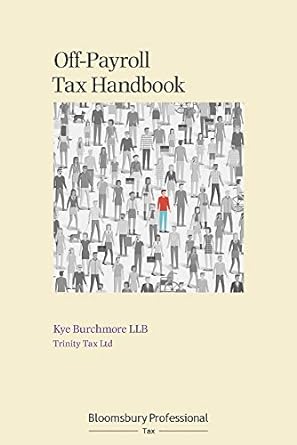Go back


Why Tax Systems Differ A Comparative Study Of The Political Economy Of Taxation(1st Edition)
Authors:
Cedric Sandford

Cover Type:Hardcover
Condition:Used
In Stock
Shipment time
Expected shipping within 2 DaysPopular items with books
Access to 30 Million+ solutions
Free ✝
Ask 50 Questions from expert
AI-Powered Answers
✝ 7 days-trial
Total Price:
$0
List Price: $37.70
Savings: $37.7(100%)
Solution Manual Includes
Access to 30 Million+ solutions
Ask 50 Questions from expert
AI-Powered Answers
24/7 Tutor Help
Detailed solutions for Why Tax Systems Differ A Comparative Study Of The Political Economy Of Taxation
Price:
$9.99
/month
Book details
ISBN: 0951515780, 978-0951515785
Book publisher: Fiscal Publications
Get your hands on the best-selling book Why Tax Systems Differ A Comparative Study Of The Political Economy Of Taxation 1st Edition for free. Feed your curiosity and let your imagination soar with the best stories coming out to you without hefty price tags. Browse SolutionInn to discover a treasure trove of fiction and non-fiction books where every page leads the reader to an undiscovered world. Start your literary adventure right away and also enjoy free shipping of these complimentary books to your door.
Book Summary: This book analyses and compares taxation in different countries. It looks at what tax systems have in common, how they differ and seeks to explain the the similarities and the differences. No attempt is made to confine the analysis on each topic to the same group of countries. Whilst the emphasis is on the larger advanced countries, countries are drawn on from all round the world according to the nature of the topic and the data available. The book seeks to answer questions such as: Why do developing countries rely heavily on indirect taxes? Why is income tax the dominant tax in advanced countries? Why is the property tax the most widely used tax in local government? Why do some countries have more tax expenditures than others? Why has VAT become the dominant sales tax world-wide? Why do less than half OECD countries have annual wealth taxes? Why are there so many differences in the way countries tax corporate income and capital gains? What are the keys to success in tax reform? And many more. In seeking to answer these questions the author draws on economic theory but also recognises the significance of historical, legal and social differences, the importance of constitutional constraints, the influence of geography and globalisation and the often decisive role played by the convictions and whims of politicians.
Customers also bought these books
Frequently Bought Together
Top Reviews for Books
Wanda Li
( 5 )
"Delivery was considerably fast, and the book I received was in a good condition."










